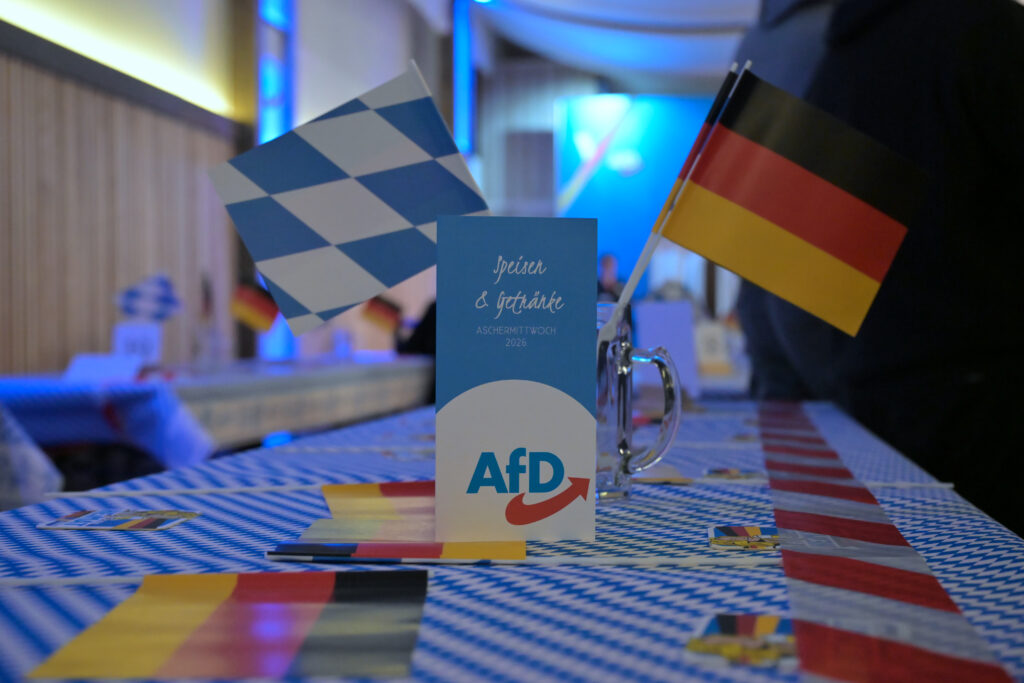Ahead of the presidential runoff on May 18, fatalistic sentiments dominate Romanian voters’ thoughts. A primary fear is that Romania might lose its EU membership and drift toward Russia’s sphere of influence. Supporters of Nicusor Dan, 55, mayor of Bucharest, promote the «useful vote» to safeguard the country’s EU status. This heightened alertness among moderate voters stems from the popularity of George Simion, 38, leader of the far-right Alliance for the Union of Romanians («AUR,» meaning «Gold» in Romanian).
Simion’s rise primarily results from public dissatisfaction following the cancellation of the December 2024 elections, when TikTok algorithm manipulations, attributed to Russia, boosted electoral support for the sovereigntist figure Calin Georgescu. Throughout the campaign, Simion maintained a close association with Georgescu, despite the latter’s ban from elections in March 2025 due to alleged illegal financing. Simion capitalized on Georgescu’s image as a victim of legal persecution, even though Georgescu openly sympathized with Vladimir Putin’s governance style. Despite the risk of being perceived as pro-Russian, Simion employed pro-peace messaging, sidelining Ukraine’s concerns and prioritizing Romania’s national interests over unconditional support for Ukraine.
Simion’s narratives about Dan’s foreign policy intentions often highlight external collusion risks, referencing the EU Commission, French influence, and Soros-linked NGO networks. According to these claims, the sovereigntist camp spreads mistrust about Dan’s ability to resist Brussels’ influence if elected president.
These reciprocal geopolitical accusations imbue the presidential runoff with a profound sense of national existential dilemma. Voters are sharply divided into two camps. On one side, Dan’s supporters advocate pro-EU and anti-Russian positions. On the opposite end, Simion’s voters champion a Romania-centered domestic and foreign policy. This pro-sovereignty stance aligns Simion and his supporters with the «Make America Great Again» (MAGA) movement of the U.S. administration under Donald Trump. Whether pro-MAGA votes for Simion will outweigh the anti-Russian, pro-EU votes for Dan depends on undecided voters, who constitute approximately 40% of eligible voters in Romania and the diaspora.
(Geo-)Politics of the Runoff: The Weight of the Diaspora Vote
The cancellation of the second round of the presidential elections on December 6, 2024, amplified support for the sovereigntist agenda of «economic nationalism and social conservatism,» advocating for a more inward-looking Romania. Georgescu’s ban from elections further created fertile ground for Simion’s rise, as he is perceived as Georgescu’s successor. This overlap with Georgescu’s public persona explains why Simion achieved a historic result for Romania’s far-right parties: nearly 41% of the vote, totaling about 3.8 million votes. To counter perceptions of being a Russian political project, Simion condemned Russia’s aggression against Ukraine and denounced the 1939 Soviet-Nazi Ribbentrop-Molotov Pact, which annexed Romanian territories. However, these efforts have not fully dispelled the «Russian» label, which Dan’s supporters actively use to alienate Simion from undecided voters.
The fear of a potentially pro-Russian president is a valid concern for most Romanians. With Russia destabilizing Romania’s neighbors, Ukraine and Moldova, voters within the country are particularly sensitive to the risks of Russian influence if Simion wins. While foreign policy and traces of Russian interference dominate the motivations of Dan’s supporters, Simion focuses on domestic issues like poverty, social inequality, and traditional values. Downplaying Romania’s foreign orientation, which he insists will remain within the EU and NATO, Simion appeals to the diaspora and their relatives in Romania.
The diaspora’s voting potential was evident in the first round, when 973,129 Romanian expatriates voted over three days. Simion secured 61% of these votes, approximately 600,000, with significant support from Italy, Germany, the UK, and Spain. He frequently cites Poland’s successful diaspora return policies as inspiration for mobilizing Romanians abroad. If results in Romania are close, increasing diaspora turnout could be Simion’s surest path to victory. For the Romanian diaspora hoping to return, issues like poverty and corruption may feel more pressing than fears of Romania exiting the EU due to Simion’s pro-Russian label.
Russia’s Indirect Effect: The Moldovan Dimension
In his youth, George Simion coordinated disruptive public actions in Moldova, questioning the existence of the Moldovan state. As a prominent leader of the civic movement «Action 2012,» Simion advocated for Romania-Moldova unification through street protests, marches, and graffiti. His aggressive rhetoric criticized Romania for lacking assertive pro-unification policies toward Moldova and was perceived as a potential threat to public order in Moldova. These activities led to his 2018 ban from entering Moldova, enforced during Igor Dodon’s presidency (2016−2020) and extended under Maia Sandu’s first term (starting in 2020). If Simion wins the presidency, the Moldovan court may lift his «persona non grata» status as early as May 19, based on a pending legal dispute with Moldova’s migration agency.
Simion’s history as a disruptive protester who challenged Moldova’s existence is now used to label him a «Russian asset.» According to this narrative, Simion’s actions in Moldova favored Russia by antagonizing Moldova through radical Romanian fringe groups, thereby bolstering Russia-leaning Moldovan parties that defend Moldovan identity and statehood. This anti-Simion narrative features prominently in Nicusor Dan’s electoral discourse. Moldovan President Maia Sandu and aligned politicians urge the approximately 1 million Moldovan citizens with Romanian voting rights to support Dan, arguing that his victory would safeguard Moldova’s EU accession against pro-Russian forces.
The MAGA Role and the Polish Entanglement
Romanian authorities have shown little interest in providing evidence of Simion’s ties to Russian intelligence or barring him from electoral processes. Unlike Calin Georgescu, who was banned from running, Simion faced no legal obstacles to reaching the second round. Nevertheless, associations with Russia have impacted voter preferences. A May 2025 IRSOP poll indicates Simion’s support at 48%, compared to 52% for Dan. In the two weeks before the runoff, Dan more than doubled his approval from the first round (about 21%), capitalizing on fears that Simion could withdraw Romania from the EU and NATO, leaving it vulnerable to Russia. To counter this, Simion has leaned into the MAGA movement and deepened ties with Poland’s Law and Justice Party (PiS).
MAGA’s success in the U.S. helped Donald Trump secure his second term and has propelled Simion and other European sovereigntist leaders to promote the «Make Europe Great Again» (MEGA) slogan. This inward-looking prioritization of national interests within the EU represents an evolved form of Euroscepticism, traditionally focused on restoring national competences at the expense of EU supranationalism. Simion shares this philosophy, advocating for a stronger U.S. presence in NATO and a less supranational EU defense orientation. His ideological stance favors an EU focused purely on economic cooperation, indirectly reliant on NATO’s security guarantees and a transactional U.S. approach. Consequently, Simion’s opposition to EU military autonomy, especially amid potential U.S.-Russia or Trump-Putin rapprochement, fuels fears that he seeks a weakened EU.
Simion’s alignment with MAGA aligns with his affiliation with the European Conservatives and Reformists Group (ECR) in the post-2024 European Parliament, making him a natural ally of Poland’s PiS and Italy’s Brothers of Italy, led by Giorgia Meloni. As ECR vice-president, Simion has fostered close ties with these groups. The overlap of Romania’s presidential runoff with Poland’s first-round elections on May 18 has triggered mutual electoral support between Simion and PiS candidate Karol Nawrocki. PiS affiliates envisage that Simion’s victory would create a chain reaction favoring Nawrocki in Poland, building an anti-German core within the EU. The MEGA coalition PiS seeks to form with Simion in Romania’s presidential office would also include Hungary and the Czech Republic. Any EU alliance challenging Brussels and Germany benefits Russia. If Simion and Nawrocki secure presidential mandates, it could diminish the influence of forces promoting the expansion of EU defense competences and Ukraine’s involvement.
Simion’s victory could have positive implications for Russia’s broader geopolitical calculations in the EU. His success would mark the first instance since Trump’s victory where MAGA propels sovereigntists in electoral processes beyond the U.S. A more hesitant Romania in the EU would bolster the efforts of vetoers like Viktor Orban and Robert Fico on sanctions and Ukraine-related policies. The potential negative impact of Simion’s victory on Ukraine peace talks further underscores the significance of Romania’s elections.










